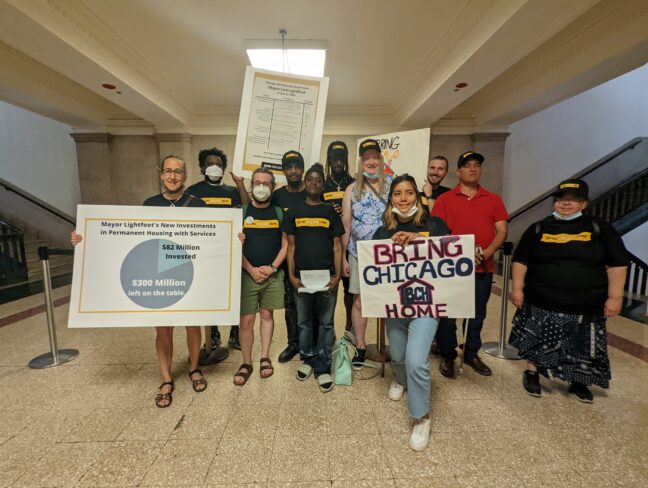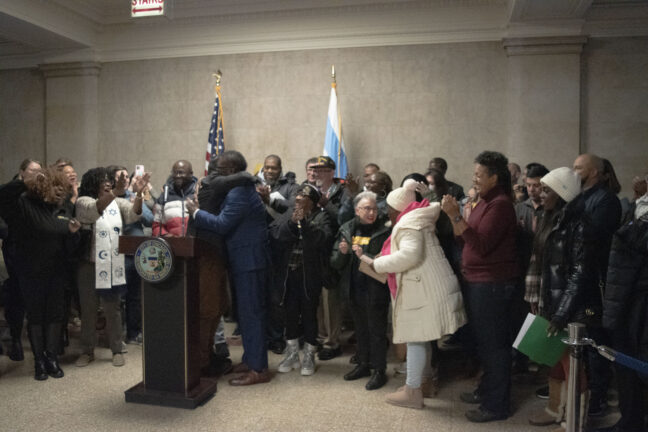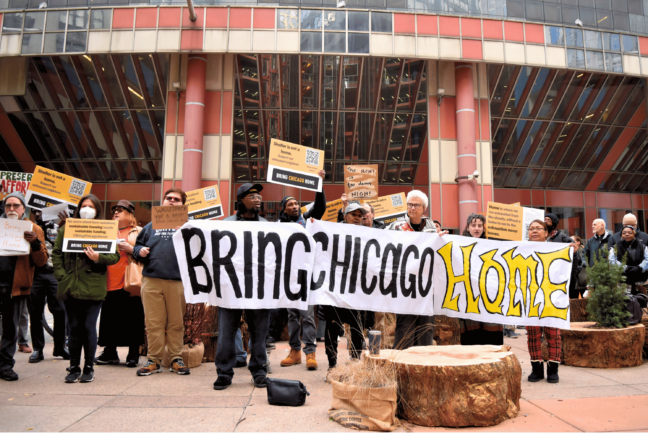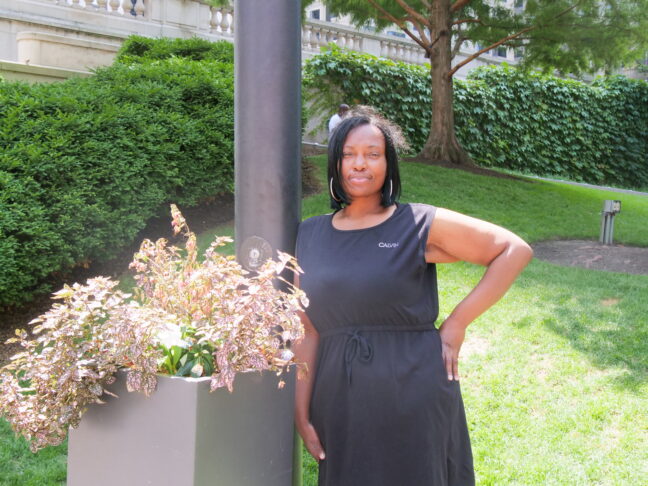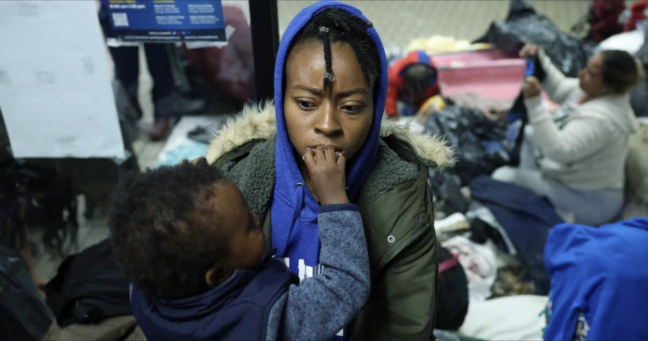By Fran Spielman (Chicago Sun-Times), November 7, 2023
It’s now up to Chicago voters to decide whether to authorize the City Council to raise the real estate transfer tax on high-end property sales to confront the burgeoning problem of homelessness.
The binding referendum known as “Bring Chicago Home” will appear on the March ballot, thanks to Tuesday’s 32-to-17 Council vote.
Johnson said the progressive movement behind Bring Chicago Home is “bigger than an office.”
“We’re gonna knock doors. We’re gonna talk to people. We’re gonna hold community meetings. And we’re gonna tell the story that one in four Black children who experience homelessness — that ain’t right. … We’re gonna right the wrong,” the mayor said.
Chicago Coalition for the Homeless is a proud coalition member of Bring Chicago Home.

